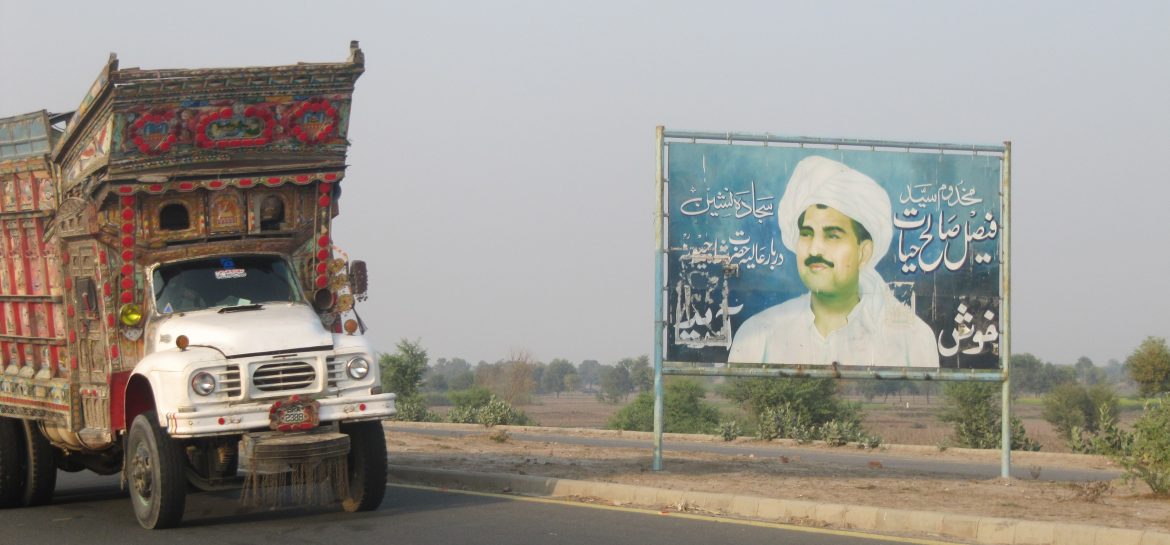Diminishing Returns: Sufi Shrines in Pakistan’s Politics

For The Revealer:
The scene that greets the devotee upon entering the final resting place of Shah Jewna leaves little doubt as to what is expected of them in the world outside.
The shrine—an expansive complex of marble buildings that is expanded every year—rises out of a landscape of dusty fields of cotton and fruit orchards pockmarked by brick kilns and dilapidated shops, the most important landmark for miles around. A dirt road leads to the shrine, some 125 miles west of the city of Lahore, in Punjab province. Hawkers line the road, calling out to the visitor to purchase sweets and flowers to offer Shah Jewna. A three story high arch covered in blue tiles leads to a stairway landing on a clean, white marble courtyard. On one end is a mosque, empty. On another, fifteen cells housing pilgrims that have come to visit the shrine for the traditional nine-day period, sweeping the floors and helping to cook the langar, the free meal offered to impoverished visitors.
The pilgrims seek the intercession of Shah Jewna, hoping the help of an awliyah—or “friend of Allah” –can increase the chances of their prayers being answered.
Shah Jewna, whose grandfather migrated to the region from Bukhara in the 15th century, was a descendant of the Prophet Muhammad. Shrines like the one devoted to him litter the landscape throughout Pakistan, with the most prominent ones dating from the 11th to 16th centuries. They house the remains of mystics and ascetics that travelled to the region when Islam was still taking root. Their followers grew as stories of their miraculous powers spread, and their generosity and charity towards the poor helped convert many local Hindus to Islam. Shah Jewna, for example, is credited with bringing a boy who had been stabbed in the chest back to life.
Visitors to the Shah Jewna shrine are confronted by a series of banners bearing the image of Makhdoom Syed Faisal Saleh Hayat, the direct descendant of Shah Jewna. The title makhdoom signifies Hayat’s status as a descendant and caretaker of a shrine. “May Allah bestow peace upon Muhammad and on the family of Muhammad,” says one banner in Arabic, recalling part of a rote that every Muslim must recite during five daily prayers. It’s a reminder of the special status given to the Prophet Muhammad’s family, whose descendants in this part of the world carry the title syed.
Another banner asks devotees to vote for Hayat, a remnant from elections held in May this year, when he ran for Parliament for the two districts near the shrine.
Continue reading here.